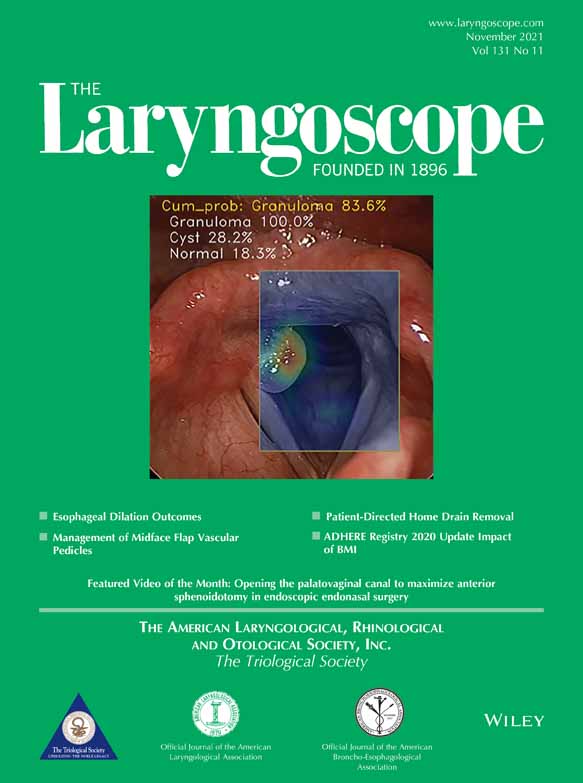Oral Somatosensory Sensitivity in Patients With Taste Disturbance
Editor's Note: This Manuscript was accepted for publication on August 10, 2021.
The authors have no funding, financial relationships, or conflicts of interest to disclose.
Clinical Trial Registration: The trial was not prospectively registered in a publicly accessible database due to the fact that it was initiated 2 years ago and we were not aware of this requirement at that moment of time.
Abstract
Objective
The significance of the human sense of taste is typically underestimated until it is altered or even lost. Hypogeusia, a diminished capacity to taste, has an adverse influence on a patient's quality of life. Similar to interactions between the oral senses and between olfaction and intranasal trigeminal sensitivity, taste disturbance may also affect the mechanosensitivity of the tongue. In this study, we investigated the lingual tactile sensitivity of patients with subjective taste disturbance and people with normogeusia.
Study Design
Prospective case-control study.
Methods
Forty-six patients with subjective taste disturbance (mean age 60 years) and 43 participants with normogeusia (mean age 55 years) were enrolled and underwent a stereognostic test of edge and point sensitivity based on 3D-printed letters sized from 2 to 8 mm. Gustatory function and salivary production were also tested.
Results
Patients with dysgeusia needed significantly bigger letters to recognize them compared with controls (P = .01). Apart from this, patients with dysgeusia had no significant association between gustatory function and salivary production. Duration of dysgeusia and age were not associated with the presently obtained measures of gustatory or oral mechanosensory function.
Conclusions
The results of this study indicate that taste dysfunction has a negative impact on oral mechanosensitivity and hence possibly on oral texture perception.
Level of Evidence
3 Laryngoscope, 131:2572–2577, 2021




